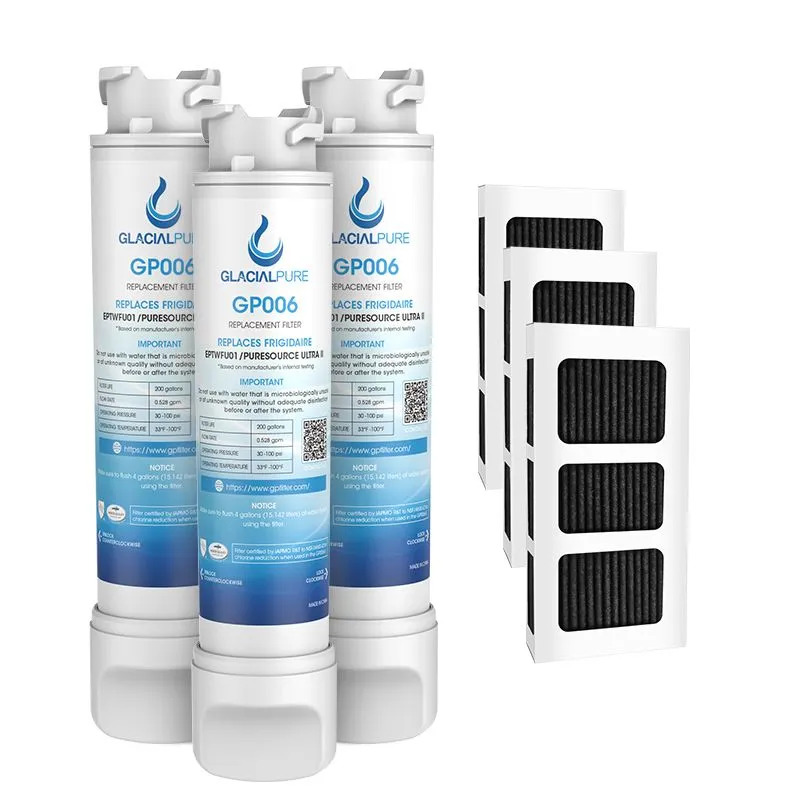Refrigerator water filters are designed to remove contaminants and other unwanted particles from the water that passes through the refrigerator water dispenser. The filter works by maintaining the quality and freshness of the water while removing unpleasant tastes and odors.
Refrigerator water filters are designed to achieve their purpose efficiently and maintaining the refrigerator filter is an integral part of refrigerator cleanliness and mechanical function.
You may be confused about how to choose the best water filter among multiple options on the market. Here are some steps to ensure the effectiveness of your refrigerator water filters.
A GAC carbon filter is able to absorb most harmful chemicals, which is recognized by the EPA as the best technology for chemical removal. Activated carbon is exposed to high temperatures, forming micropores. This newly created surface can effectively filter out a variety of contaminants such as chlorine, pesticides, trihalomethanes (THMs) and other cancer-related chemicals. GAC also removes unpleasant smells and odors.
Sub-micron Filtration (Filtration down to 0.5 microns)
High-quality in-line refrigerator filters should contain highly porous surfaces. One of the more expensive and highest performing materials is the coconut shell carbon block. The filter should have a submicron filtration capability of 0.5 or less. This is effective in removing chlorine-resistant microorganisms such as Cryptosporidium and Giardia. Low-cost carbon efficiency is lower and requires more frequent replacement. Look for filters that can be used for at least 6 months.
Absorption (The contaminant chemically bond to the surface of the GAC filter media)
While submicron filtration works by physically blocking pollutants, adsorption is the process by which a carbon filter actually attracts various dissolved contaminants and retains or adsorbs them on the surface of carbon particles. Filtration systems such as the AQ7000 use highly compressed carbon media to filter chlorine, lead, VOCs (volatile organic chemicals), THM, turbidity (sediment levels), and most other tap water contaminants.
Ion Exchange (Replace harmful lead ions with healthy potassium ions)
The final filtration technique is ion exchange. At this stage, lead is filtered out through a complex ion exchange process in which lead ions are replaced by potassium ions. This process is very effective for the reduction of lead and heavy metals. It also enhances the natural mineral balance in your waters. Potassium is one of the minerals that gives your water a natural spring taste as well as a neutral PH. This effect can be achieved by impregnating coconut shell carbon blocks with microporous zeolite with potassium.
When you want an effective refrigerator water filter, remember 3 aspects above. We are living in a world that thousands of chemicals trying to enter our water supply system, we need to adhere to the most progressive breakthroughs in water filtration. If you don't, you'll leave you and your family's health to chance.
Selecting Good Quality Refrigerator Filters Replacements, such as EPTWFU01 Refrigerator Water Filter at morefilter.com now.
Coconut Shell Activated Carbon
Certified by NSF
Removes 97% of lead













